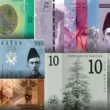The 2021 Global Hunger Index (GHI) revealed that Pakistan has made improvements over the years, as the nation was rated 92nd out of 116, despite the fact that the globe remains off-track in the battle against hunger and moving further away from the legally mandated objective of eradicating hunger by 2030.
Since 2007, Concern Worldwide of Ireland and Welthungerhilfe (WHH) have released the Global Hunger Index (GHI), a peer-reviewed publication that tracks hunger around the world.
The nutrition division of the Scaling up Nutrition (SUN) Secretariat in the planning ministry attended a launch event for the chapter on Pakistan on Tuesday at a nearby hotel.
The Demographic and Health Surveys of Pakistan (DHSP) and government-led or carried out nutrition-related surveys throughout the nation are mainly the sources of data used to create the report each year.
Data shows a worrying increase in the number of hungry and disadvantaged people.
It is important to note that because wealthy nations were excluded from the survey, the study is based solely on the circumstances of developing and underdeveloped nations. This year, just 116 countries’ worth of data were accessible. According to the research, a country’s hunger ratio is deemed to be low when it is near to zero, and high when it is close to 100.
Pakistan is now rated 92 out of 116 countries with a score of 24.7.
Data from the most recent United Nations report is frightening because it shows that there are more hungry and underprivileged people than ever before. There are currently 811 million hungry people in the globe, and 41 million people are on the verge of starvation. By 2030, 47 nations will still have high levels of hunger, including 28 in Africa.
The chapter on Pakistan demonstrates that the situation with regard to hunger has improved since 2000. The ratio was 36.7 in 2000, 33.1 in 2006, 32.1 in 2012, and subsequently decreased to 24.7 in 2021.
Aisha Jamshed, country director for Welthungerhilfe, greeted attendees to the event and spoke with them about the GHI’s goal as well as the organization’s work helping communities that are food insecure build resilience in partnership with the corporate sector, government, and civil society.
Speaking to the audience were Food and Nutrition Security Advisor Omer Bangash, Dr. Omer Tarar, Principal Scientific Officer from Pakistan Council of Scientific and Industrial Research, Dr. Nazeer Ahmed, Chief of Nutrition at the Ministry of Planning, and Chris Kaye, Country Director for the World Food Programme.









